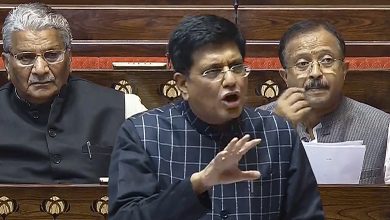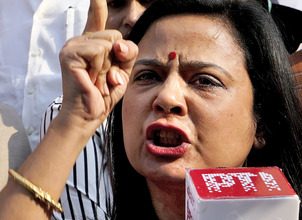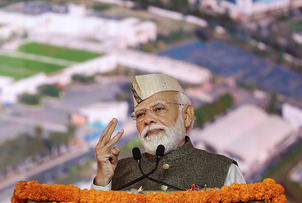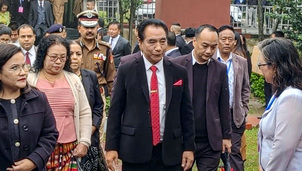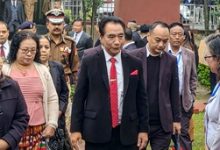Iran state TV says Ahmadinejad will run in presidential race

Tehran, May 12 (AP):
Iran’s state television reported Wednesday that the country’s former firebrand president will run again for office in upcoming elections in June.
Mahmoud Ahmadinejad reportedly marched accompanied by supporters to a registration centre at the Interior Ministry where he filled out registration forms.
Ahmadinejad in recent years has tried to polish his hardline image into a more centrist candidacy, criticizing the government for mismanagement.
The Holocaust-denying Ahmadinejad has previously been banned from running for the presidency by Supreme Leader Ayatollah Ali Khamenei in 2017, although then, he registered anyway. A constitutional watchdog, the Guardian Council ultimately disqualified him then. Khamenei says he will not oppose the nomination of any candidate, although the electoral council may still block Ahmadinejad’s candidacy. In either case, the populist’s return to the political scene may energize discontent among hard-liners who seek a tougher stance against the west particularly Israel and the US.
Iran opened registration on Tuesday, kicking off the race as uncertainty looms over Tehran’s tattered nuclear deal with world powers and tensions remain high with the West. President Hassan Rouhani cannot run again due to term limits, yet with the poll just a month away no immediate favourite has emerged among the many rumoured candidates. There also appears to be little interest in the vote by a public crushed by sanctions and the coronavirus pandemic.
Nevertheless, many view the country’s hard-liners as ascendant even as the US under President Joe Biden tries to find a way to re-enter the atomic accord. Whoever wins the June 18 vote will take over from Rouhani, a relative moderate within the Islamic Republic whose two four-year terms began with Iran reaching the nuclear deal.
His time in office now draws to a close with the accord unravelled after the US unilaterally withdrew from it under President Donald Trump in 2018.
Ahmadinejad pushed his nation into open confrontation with both the West over its nuclear programme and its own people after his disputed 2009 re-election sparked the biggest mass protests since the country’s 1979 Islamic Revolution.
Abroad, he became a caricature of Western perceptions of the Islamic Republic’s worst attributes, such as denying the Holocaust, insisting Iran had no gay or lesbian citizens and hinting Iran could build a nuclear weapon if it chose to do so.


